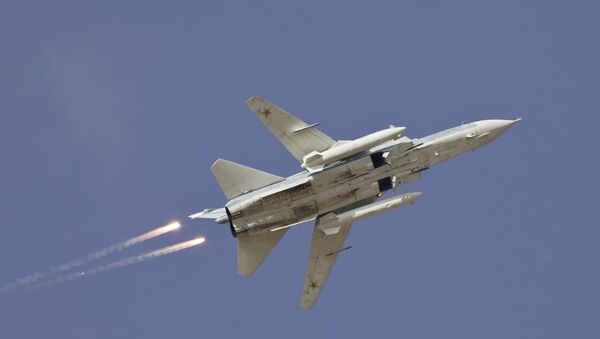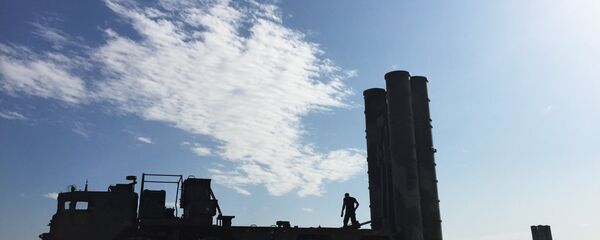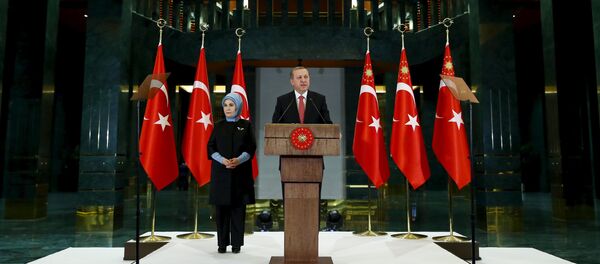In the aftermath of the downing of the Russian Su-24 bomber by the Turkish F-16 fighter, Moscow has deployed Russia's most advanced S-400 Triumf air defense system in Syria and sent the Moskva guided-missile cruiser equipped with the S-300 to the Syrian shores in order to ensure the security of Russian jets operating in the region.
Remarkably, the S-400 (or SA-21 Growler in NATO designation) is capable of intercepting all types of modern air weaponry, including fifth-generation warplanes, as well as ballistic and cruise missiles at a maximum range of nearly 250 miles.
#SYRIA #FOOTAGE S-400 AA missile system deployed at #Hmeymim airbase https://t.co/CAeRBRl4JJ pic.twitter.com/zjOBLVdXAP
— Минобороны России (@mod_russia) 26 ноября 2015
Russia has deployed its modern air defense systems "to make sure that the tragic incident from Tuesday never repeats itself by sending Turkey a very clear message that the next time a Turkish warplane engages a Russian jet, Russia will immediately retaliate using ground forces," anonymous analyst for the financial website Zero Hedge Tyler Durden underscores.
But does the message address solely Turkey and its unpredictable and extravagant leader?
Durden draws attention to the fact that the deployment of the S-400 has immediately prompted concerns among US diplomats in Moscow. They noted that the Russian air defense systems could not be used against Islamic State, since the notorious terrorist organization does not have an air force.
However, Russian President Putin has clearly explained Russia's motif, the analyst continues.
"The S-400 is a system of defense, and we did not have these systems there, in Syria, because we assumed that our aircraft operating at altitudes which cannot be reached by the criminal hand of terrorists, they do not have appropriate military equipment which is able to shoot down planes at an altitude of 3-4 thousand meters," Putin said after talks with French President Francois Hollande in Moscow.
He stressed that after being stabbed in the back by Turkey, Russia must now take measures to ensure its safety in the region.
Durden notes that after that Vladimir Putin's press conference suddenly "took an unexpected detour."
"The American side, which leads Coalition that Turkey is part of, knew where and when our warplanes operated [at the time of the incident]. And that's exactly where the attack took place," Putin emphasized.
#Putin: We informed the US where our pilots would be working, & that's where we got hit. This raises many questions. pic.twitter.com/PhXQKxikeh
— Nina Byzantina (@NinaByzantina) 26 ноября 2015
The analyst suggested that by informing the audience that the US military knew the exact coordinates of the Russian Su-24 plane, the Russian President indirectly but "effectively" blamed the US for "leaking the coordinates of the Russian plane to Turkey." According to the analyst, Turkey could have been "merely a hitman, acting with the blessing of the Pentagon."
"Either they have no control over the flow of information, or they have circulated this information without realizing possible consequences of such a leak," Putin said, adding that Moscow will definitely hold serious consultations with Washington on the matter.
The Zero Hedge analyst believes that "the real message" of Putin's press conference at the Kremlin is that the Russian leadership indirectly blames US President Barack Obama for what occurred on Tuesday in the skies of Syria, "realizing that Erdogan was merely the 'executor,' one who is simply motivated to protect his (and his son's) Islamic State oil routes."




